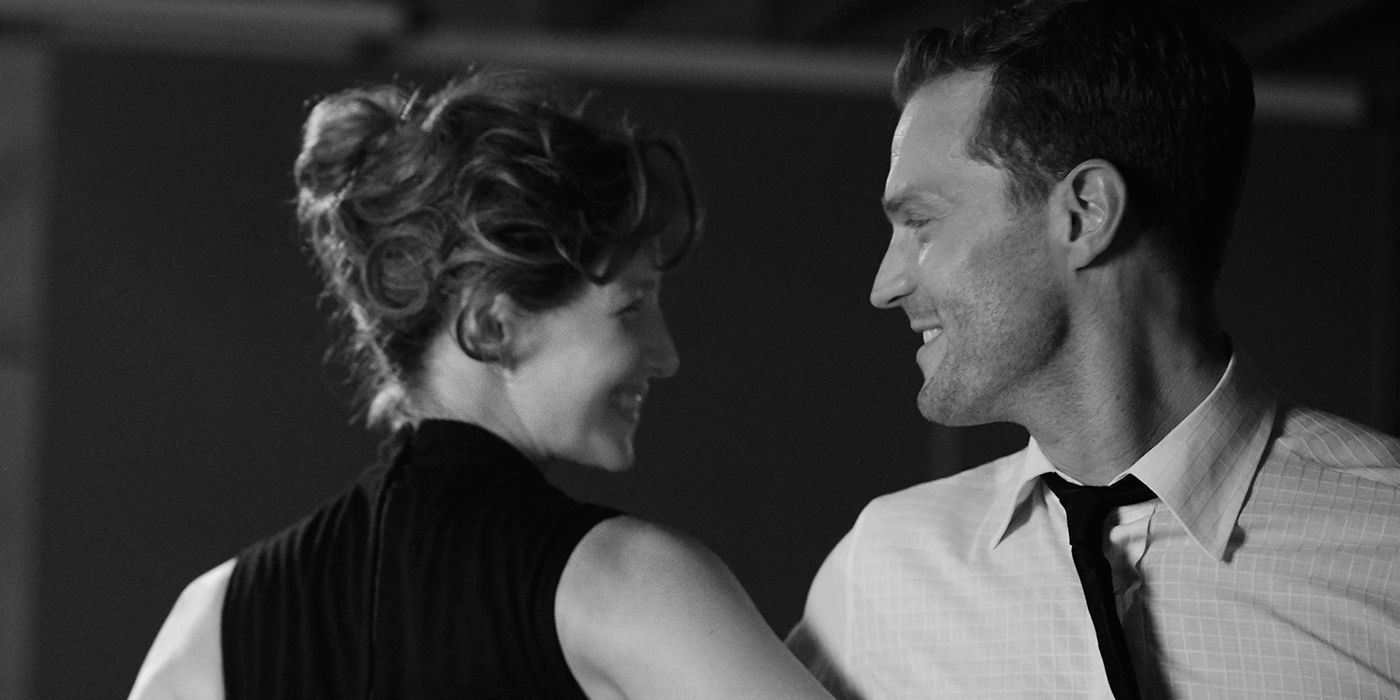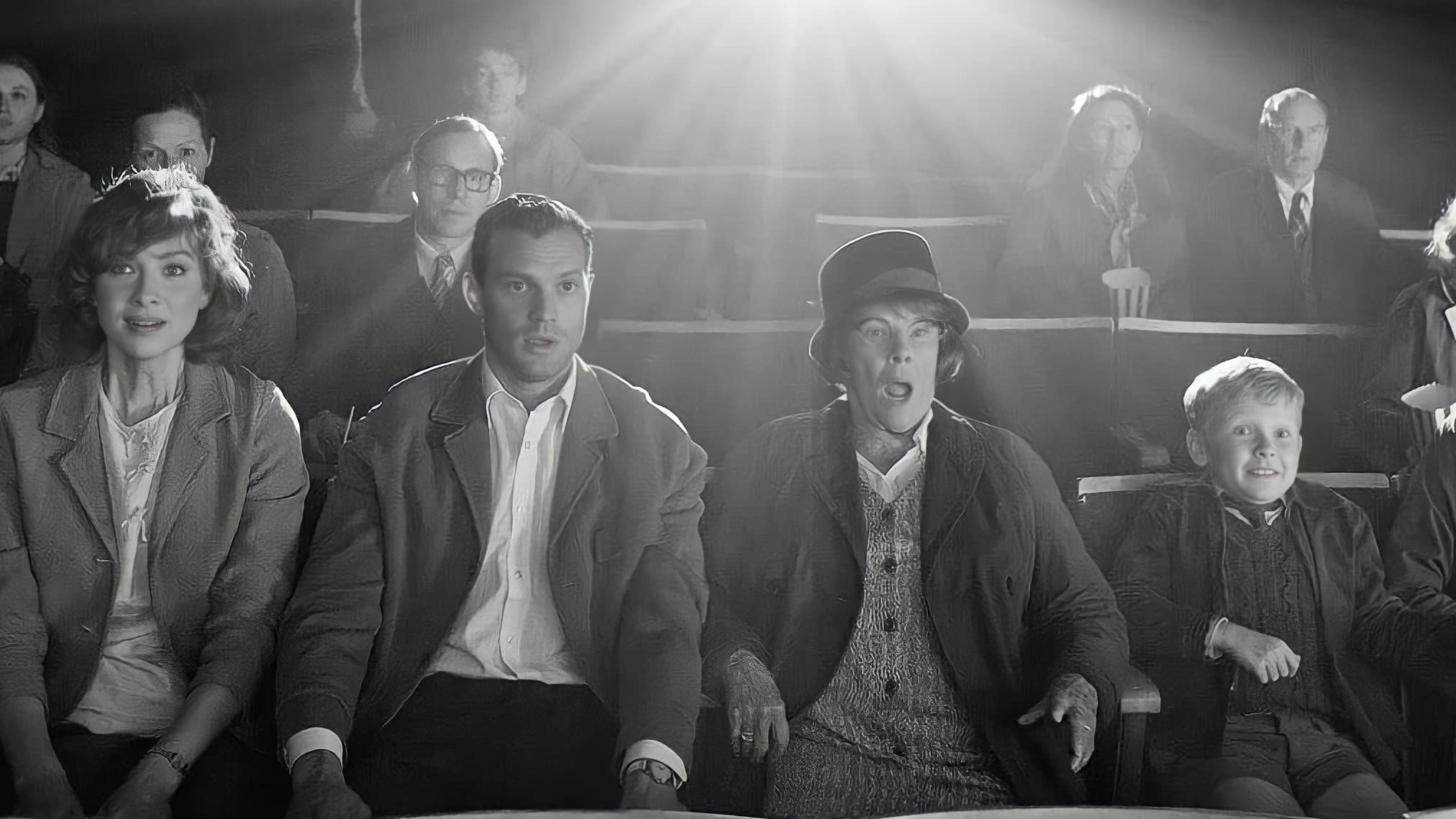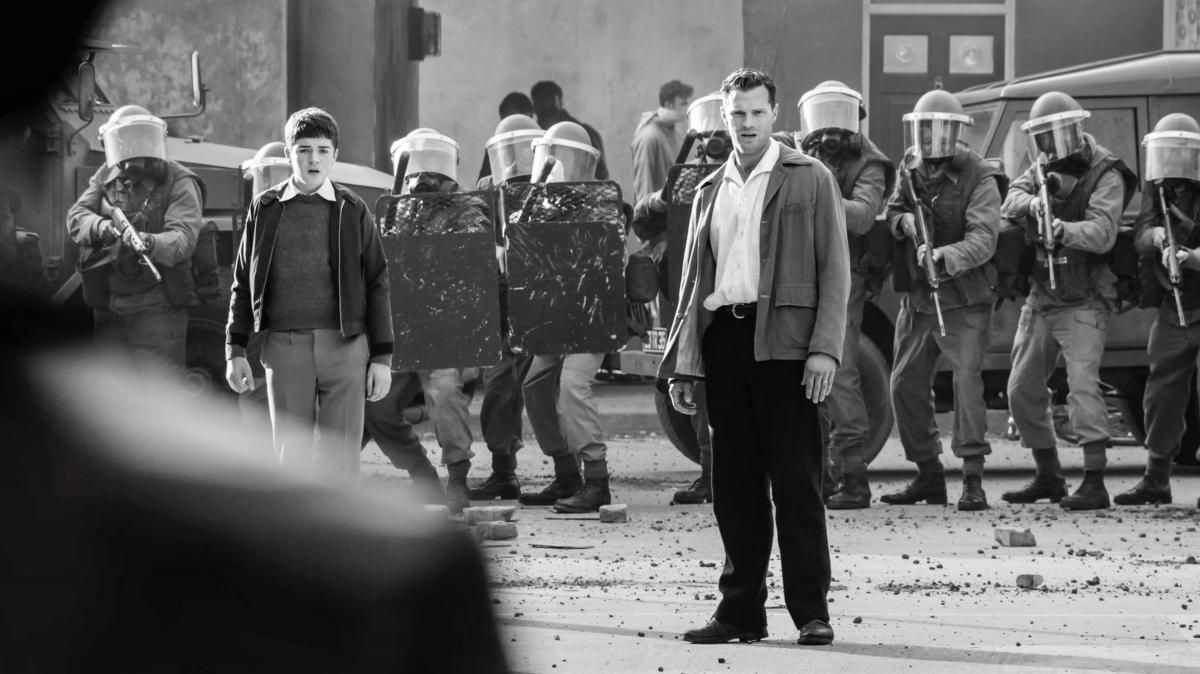Belfast is the most personal film director Kenneth Branagh has ever made, and yet I feel I know him as well after this movie as I do after seeing anonymous efforts like Artemis Fowl and Jack Ryan: Shadow Recruit. What’s meant to be a look at Branagh’s childhood and the time he grew up ends up being a glimpse into the past without perspective. The story is told through the eyes of the young Buddy (Jude Hill), but he’s a boy who seems largely unaffected by all the drama unfolding around him. It’s a film set during the Troubles that doesn’t seem to have anything to say about that period, and it’s a film where there’s marital strife, and there doesn’t seem to be much to say about that either. Belfast seems largely like a collection of Branagh’s memories, but he fails to craft them into a compelling or thoughtful narrative.
The film begins on August 15, 1969 where young Buddy is playing in the street with his friends when riots begin between the Protestants and the Catholics. Buddy is from a working-class Protestant family, but they harbor no ill-will towards their Catholic neighbors. Rather than engaging with the current political strife that surrounds them, Buddy’s mother (Caitríona Balfe) and father (Jamie Dornan) are having their own problems. They’re struggling to pay off tax debt, and Buddy’s father is away for weeks at a time on the jobs he can get, which still isn’t enough to pay the rent. And yet through everything, Buddy seems to have a pretty happy childhood that consists of spending time with his loving grandparents (Judi Dench and Ciarán Hinds), going to the movies (the rare spots of color in Buddy’s black-and-white world), and pining after his pretty classmate. But for all the trouble surrounding Buddy and his family, they’re torn on whether they can truly leave Belfast and what it mean to leave their home behind.
I’m not entirely sure how to even categorize Belfast. It would be a stretch to call it a “coming-of-age” movie because Buddy seems largely the same at the end of the story as he is at the beginning. Granted, he’s just a child so it’s not like this is an Empire of the Sun situation where he undergoes such massive trauma that it strips him of his childhood, but he doesn’t seem to really grow or change or even really register what’s happening in his world. He’s a passive observer to these events, and yet without any impact, Buddy’s world registers as nothing more than a collection of scattered events. These events clearly left an impression on Branagh (hence their inclusion), but they’re presented at a bizarre distance. They are things that happened but didn’t seem to leave a perceptible impression on Buddy.
For example, in one scene, a local thug (Billy Clanton) who wants to get rid of all the Catholics while also forcing the local Protestants to either join his crew or pay protection, comes to the house of one of Buddy’s neighbors. The neighbor refuses to fall in line, and so the thug punches him in the face and knocks him out in front of his child. But the way Branagh frames the scene is almost comic. The neighbor spits out his drink as he gets punched and then falls backwards into his home with his feet sticking out on the stoop. What should be a moment of shocking violence to further show the deterioration of Buddy’s neighborhood leaves no impact on the character or the audience.
Or take the scenes between Buddy’s parents. They’re arguing about real things—money, if they should move, how much time his father spends away from home—and yet at no point does Buddy seem to engage with these tense conversations. He witnesses them, but he doesn’t go to his older brother (a character who has surprisingly little presence in Buddy’s life despite only being a few years older and living in the same house) to ask what’s going on or make any kind of emotional display that this marital strife impacts him. It is, like so many things in Belfast, a thing that happened. It carries no more or less weight than Buddy’s crush on his schoolmate or that the neighborhood is the center of violent clashes between Protestants and Catholics. And granted, as adult viewers, we understand this world better than a child such as Buddy, but you can still convey emotional impact without intellectual comprehension. Belfast fails to do so, and so it becomes nothing more than an assortment of memories without the most important element—how those memories translated to emotions and transformation.
Belfast is a bizarre film because it’s like Branagh wanted to let us into his childhood, but only to a point. He’s under no obligation to bare his soul, but for all the dramatic things that happened around him, Branagh presents a world without scars. It’s almost as if you asked him about his childhood, he would laugh it off and say, “Well, aside from The Troubles and my parents fighting about money, I had a pretty pleasant go of things!” That’s not to say that Branagh’s childhood doesn’t matter, but Belfast never answers the question of why it mattered so much that Branagh felt compelled to make a movie about it. Branagh ends up giving us a time and a place, but never much reason to care.
Rating: C-



